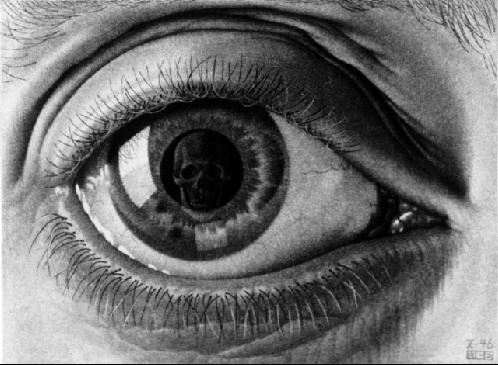Finding Meaning & Purpose: A Needed Goal Following Loss
I recently stumbled on an article that was posted September 2013 by Mark Manson on his Web site. The article titled: "Find What You Love and Let It Kill You" is a quote from the poet and author Charles Bukowski. Manson presents Bukowski generally and is on point about all his warts, pain, self-destruction, and powerful writingl. The primary message is that when one is passionate about something pain follows. That is the essence of Love Loss Grief Pain.
I may be wading into my own private Idaho here so bear with me. Manson notes that it’s understood 'you don’t get love without pain'. Nor do you get meaning and profundity without sacrifice. Then Manson writes this:
"Meaning is the new luxury."
This entire meaning and purpose thing has been my emotional struggle. I had meaning when I owned my business. I had it in spades when I was a caregiver for Donna and the docent for her death. Suddenly after her death I hit a wall for meaning and purpose. Add to that the failure to find work or even give a shit all meaning and purpose evaporated. I have written about meaning and purpose here and here. Bottomline for me I want to find how not to languish in my own head about Donna, grief, my life, my lack of life, and more.
Manson sums his view and the view of Bukowski. Finding meaning and purpose is not a five day spa retreat. It is hell and he quotes Bukowski "What matters most is how well you walk through the fire." Waking up one day happy ain't in the cards for most and especially for me. And doing it over and over paying attention to how it feels may just end up with you being changed. Read this and jump to the link for ‘Because you Change’. (Good stuff)
So what the fuck does this have to do with Donna, me, and grief? I have been lost since Donna died or that's what it feels like. After reading this I am still stuck in the emotional amber of my grief yet when I look at what I am doing or have done maybe perhaps I am in that walking through fire phase. I am building meaning and purpose with my blog, writing and publishing Donna, A Photo Memoir of Love and Loss, filling my days with habits though I still have goals, and I am learning no one gives a shit and my fucks have flown the coop. So perhaps, maybe, just in case I am on a path to something meaningful.
The Science of Making and Loosing Memories
This was from Caltech's Web site "How Memories From and Fade". This was : animal study where mice were put into a straight enclosure with unique symbols along the walls. At the end of enclosure was sugar water. Newly place animals were unsure of what to do and wandered until it found the sugar water. Only one neuron activated at the first interaction with the enclosure. Over time as the mouse repeated this exercise it became familiar with the task and the symbols more neurons were activated. To examine how memories fade over time the mice were kept off the track for 20 days. When returned to the track mice had formed strong memories encoded by higher numbers of neurons. Using groups of neurons enables us to have the redundency that allows us to recall memories even if some neurons fall silent.
The scientist explained it this way. The more you tell or re-tell a story and tell others this story each time it is repeated it strengthens the story and fills gaps. Re-telling the story increases the likelihood of the memory persisting over time. That is what happens with the neurons. Repeated telling's increase the number of active neurons.
So to all of use who have lost a loved one, shared our story with others, joined an online platform such as #hywc we are reinforcing those memory neurons and expanding the number of neurons making that memory intractable. It seems we don’t forget as we progress in our grief journey.
Home Hospice Considerations
The New York Times article "Is Dying at Home Overrated?" written by RICHARD LEITER, MD. Is critically important to anyone caring for a terminally ill loved one. It is also something I can speak to first hand.
Donna was diagnosed with Stage IV cancer and told she had six months of life. The hard work of an excellent oncologist, his team, and Donna’s take no shit attitude she lived for nearly three years. In July of 2011 her third and last treatment option was failing. She developed a pleural effusion which required a hospital stay to have it drained. A week later the effusion could not be cleared and she entered hospice. Below are excerpts from Donna, A Photo Memoir of Love and Loss.
Dr. B. and Dr. S. suggested Home Hospice. When the Hospice intake staff spoke with me, they weren’t wearing white coats. This was not clinical. It was business. The conversation felt like a sales call, done in a busy hallway of rushing physicians and nurses, with families of patients sitting nearby. Here I was, speaking and answering questions about Donna’s death, in the most public of venues for the world to hear. Intake handed me papers to sign. I did not feel like a person about to lose his wife of 28 years, being offered hope and dignity. I felt like a transaction.
The Home Hospice bed and other items were ordered, delivered, and set up in our apartment, with the bed in the living room. All the while I was imagining Donna in the bed while I sat next to her, catching up on the episode of Sons of Anarchy she missed. I pushed out of my mind having to bathe her, change her bedpan, attend to her pain meds, and wake in the middle of night to comfort her. None of that was ever part of our plan thirty years ago but I knew when the time came I’d face it like a Marine. You do not leave your dead or wounded behind. We would take that final march to the Medvac helicopter that would carry her away.
Early that Saturday, Dr. S. spoke with me at the hospital. The floor was quiet and Dr. S. was at the nurse’s station, looking at patient charts in thick, brightly colored plastic binders. He didn't really look up at me. Or maybe I don't remember because the numbness of it all was taking its toll.
He said, “Dr. B., the Hospice staff, and I think it would be best if Donna enters the Hospice unit in the hospital. The care she needs, even with medical aides, is beyond what Home Hospice can do.”
I had been holding on to that trope of a wonderful, peaceful death at home, surrounded by friends and family circling her bed like supplicants kneeling to receive the communion of her life passing. Now I was hearing that even if she came home, she wouldn’t have that. I wonder to this day if Dr. S. was straight with me, or if they all thought I was a caregiving failure and couldn’t be trusted.
Dr. Leiter spoke to all of what I pulled from the book. The medical staff who I trusted implicitly understood both Donna and I and knew dying at home was going to be beyond my pay grade and my emotional intelligence.
Dr. Leiter's article is worth a careful read if your loved one is facing death.











